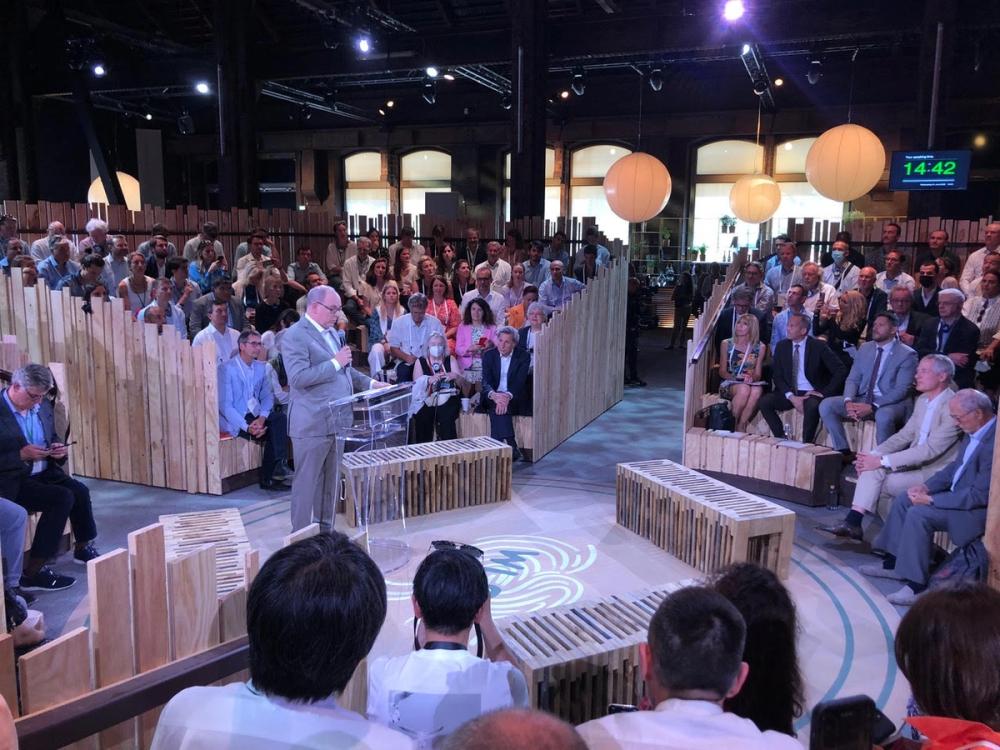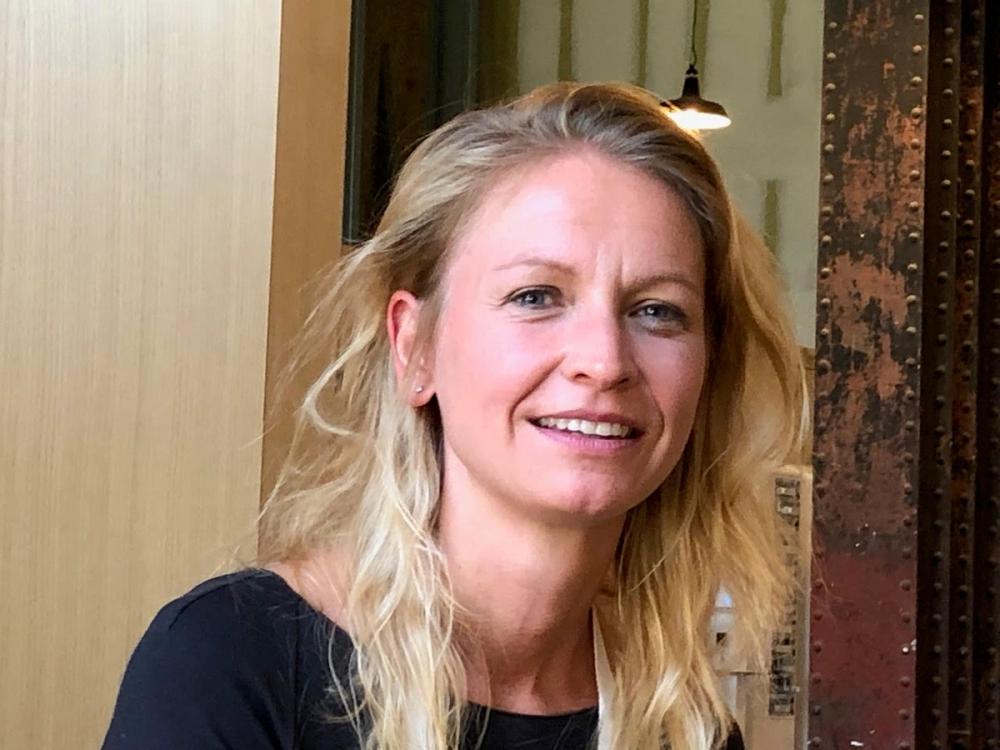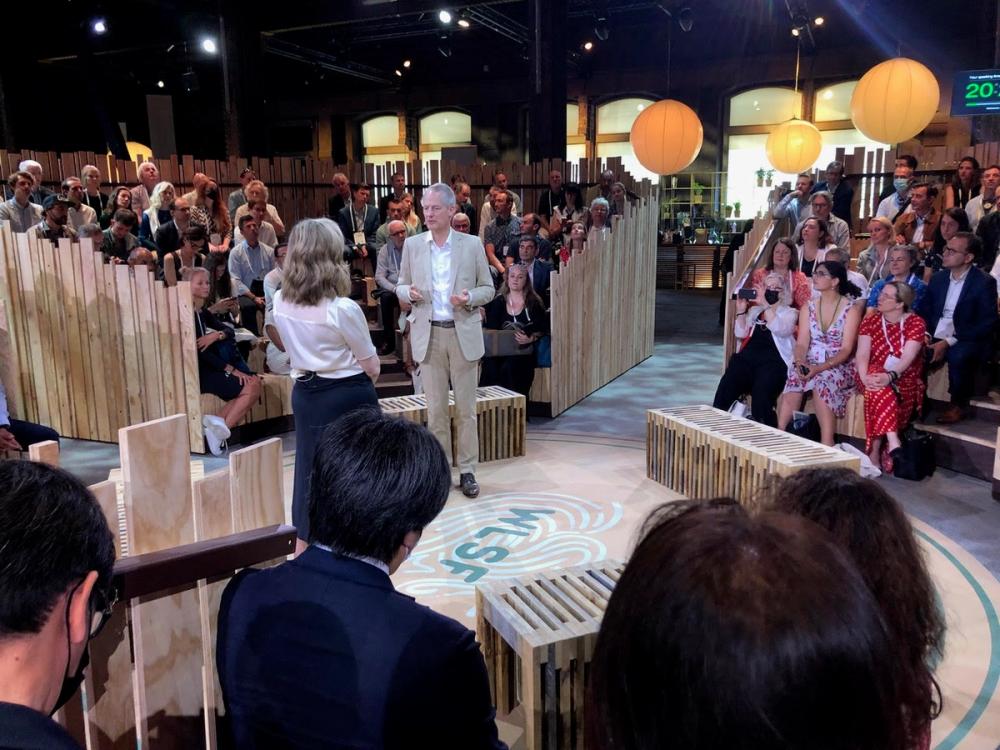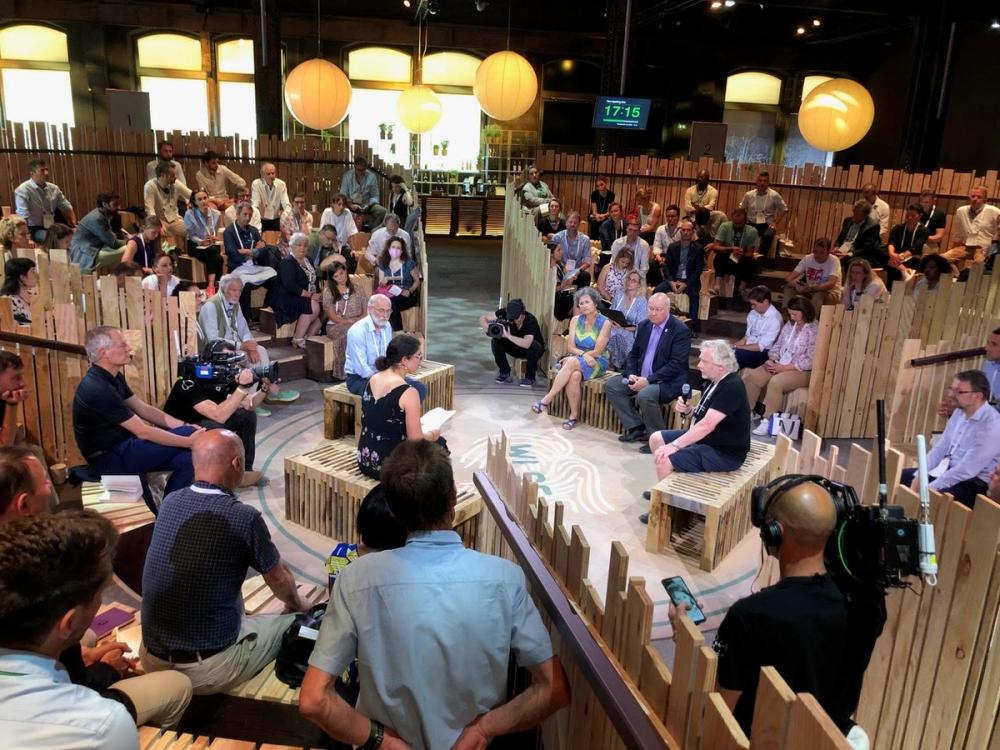“It’s like we have been running a factory 24/7 without maintenance,” is how César Giron, chief executive of Martell Mumm Perrier-Jouët, describes how the world has been treating the soils that are fundamental to so much of what we eat and drink at Moët Hennessy’s recent World Living Soils Forum.
Soil has been described as the ‘cinderella’ of sustainability. In the face of a mounting climate emergency global attention has, understandably enough, tended to focus on the increase in heatwaves, droughts and extreme weather events. The catastrophic degradation of much of the world’s soils, on which we depend for almost all our food, is too often overlooked.
The critical importance of soil health, and its role in mitigating climate change and maintaining diverse ecosystems, was the central theme of the first World Living Soils Forum, organised by Moët Hennessy, the wine and spirits arms of luxury group LVMH, in the southern French town of Arles on 1-2 June. The event brought together representatives of the food and drinks industry, researchers and scientific experts for a series of roundtables and workshops on the importance of regenerating the world’s soils.

Prince Albert Monaco addressing the World Living Soils Forum
Quoting President Roosevelt, Prince Albert of Monaco warned the conference that “the nation that destroys its soil destroys itself”. With over 30% of world soil degraded according to the UN Food & Agriculture Organisation (FAO), it is a warning we should take seriously, especially in the face of more severe climate conditions. The biological structure of soil, which gives it the resilience to resist flooding and droughts, and influences its capacity to store carbon, is created by the complex microbiological life within it. That life is being degraded by our current conventional farming practices – hence the title of the Forum.
The future of humanity depends on understanding our soils better and managing them more sustainably. However, as Ronald Vargas of the FAO’s Global Soil Partnership put it, “giving voice to a resource that is invisible is challenging. We stand on the soil, but we don’t see or value it”.
Soil scientist Lydie-Stella Koutika argues that “if we want healthy, fertile soils that will store carbon, we have to take more account of micro-organisms in the soil that we can’t see but which play a huge role in sustainability”.
Catalyst for action
The wine and spirits sector is a relatively minor player in global agriculture, but has punched above its weight in recent years on climate action through events like the Porto Protocol. The World Living Soils Forum aspires to do something similar for soils. Philippe Schaus, chief executive of Moët Hennessy, sees the Forum as a catalyst for action: “Soils are a critical, limited resource and we have to protect them for the next generation. This event is the beginning of a journey; we want it to become a recurrent rendezvous.”
“It’s like we have been running a factory 24/7 without maintenance,” said César Giron, chief executive of Martell Mumm Perrier-Jouët. “We have no choice now but to focus on the maintenance of our terroirs.”
While evidence of the link between soils and wine quality may be hard to demonstrate, soils are critical to the health of vines and influence the wines they produce. Scientist Kris Nichols, who worked on the 2020 documentary Kiss the Ground, argues that “as a microbiologist, I know that microbes are essential to the production of wine and spirits, even if you can’t see them. Soils contribute to the smell, flavour and texture of wine”.

Jessica Julmy was able to share the sustainability work she is doing at Château Galoupet in Provence
One of the Forum’s main messages was the need for holistic approaches to agriculture that work with, rather than against, the surrounding ecosystem. Jessica Julmy, who runs LVMH’s flagship sustainability project Château Galoupet in Provence, is working with agroforestry experts to create wildlife corridors in the estate, with water engineers to conserve water and with cover crop specialists to regenerate soils. “We are really focused on regenerating organic matter in our soils at the moment. I don’t want anything to be working in silo; it all has to be linked together,” says Julmy. She says her “eureka moment” came when she learnt the domaine was host to a rare turtle. “That was when I realised that we couldn’t just think of the vineyard in isolation – we had to think of the whole ecosystem.”
According to Patrice Coll, vineyard manager at Hennessy, the complex interactions between the vine and micro-organisms in the soil, such as bacteria, microfungi and nematodes, serve to build the plant’s resilience. “There is no one approach applicable to every vineyard, but the three pillars for creating a healthy ecosystem are reducing the use of herbicides, insecticides and fungicides; limiting soil disturbance as much as possible; and encouraging biodiversity through cover crops, agroforestry and wildlife corridors.”
Soil compaction

Moët Hennessy’s Philippe Schaus: “Soils are a critical, limited resource and we have to protect them for the next generation”
Soil compaction caused by ploughing and leaving topsoil bare can damage vineyards in a number of ways, leading to higher soil temperatures, poor water filtration and lower levels of microbiological activity. The soil’s capacity to filter water is particularly important. “If soil has been left uncovered, it becomes compacted and water does not drain into the ground,” says Antoine Dauphin, vineyard manager at Krug. “Champagne has experienced extreme weather more frequently in recent years, including heavy rainfall last year leading to serious erosion. In extreme cases, vineyards can lose a lot of topsoil in just a few hours. So it’s important to have plants covering the soil to maximise filtration.”
Cover crops with dense root systems can help decompact the soil by aerating it and promoting better water filtration.
Soils, which store carbon by accumulating organic matter, potentially also have an important role to play in carbon sequestration. Claire Chenu, director of research at France’s National Research Institute for Agriculture, Food & the Environment (INRAE), and a leading researcher on soil’s ability to store CO2, believes agricultural soils are one of the solutions to mitigating climate change. “According to current estimates, the world’s soils have the capacity to store 1-2 billion tonnes of CO2, but their potential to do this depends on their structure and health.”

Areni’s Pauline Vicard’s host a debate with leading sustainability experts including Felton Road’s Nigel Greening
Robynne Anderson, an international expert in agricultural and food policies, is convinced that agriculture has the ability to be ‘net positive’ (putting more into the environment than it takes out) without compromising on food security. The ‘4 pour 1000’ initiative calls for the world to increase the quantity of carbon stored in soils by 0.4% (four parts per thousand) – the rate of carbon sequestration in soil required to offset CO2 emissions – by scaling up regenerative farming. Its executive secretary, agronomist Paul Luu, agrees that agriculture may be the only sector that can be net positive in the long term.
Cost and cultural resistance are often obstacles to adopting more sustainable approaches. Stephen Cronk of Maison Mirabeau, who launched the Regenerative Viticulture Foundation in March 2022, says that when he first took samples of the soil at his domaine, it was “nearly dead”. He had to contend with a lot of scepticism from local vignerons when he wanted to change vineyard practices. But he argues that “you have to work with nature, not against it. The true costs of not working in a biodiverse way is that we are degrading a finite resource”.
“The biggest barrier is starting to change,” says Jean-Philippe Hecquet, chief executive of Rémy Martin. ‘”We need to help vignerons take the first step, by reassuring them and giving them technical and sometimes financial support to start the transition.”
Despite the sobering message of the Forum, Hecquet remains positive: “There is no one solution to the problems we face; there are thousands.”








































